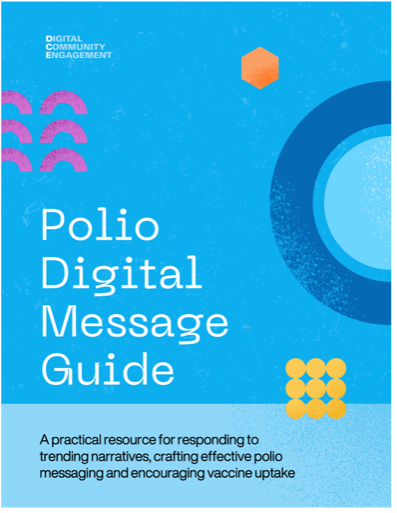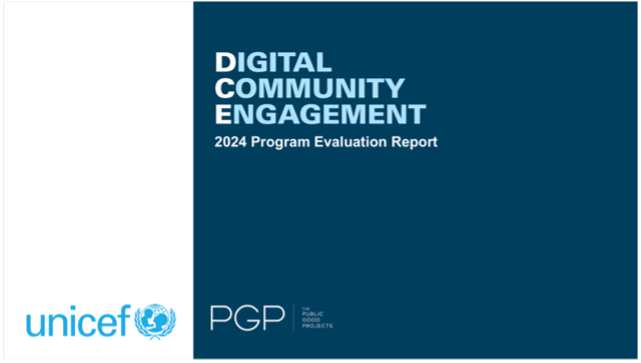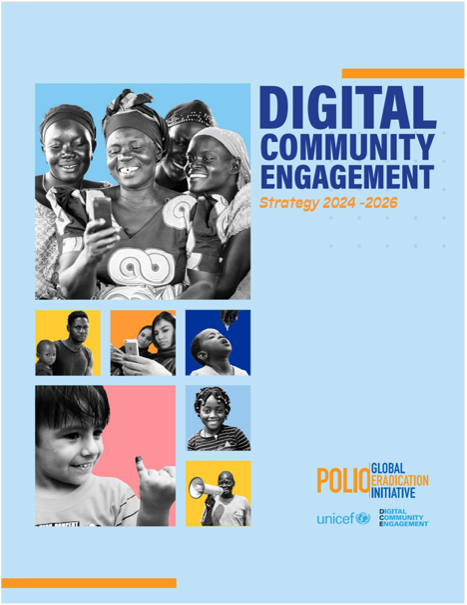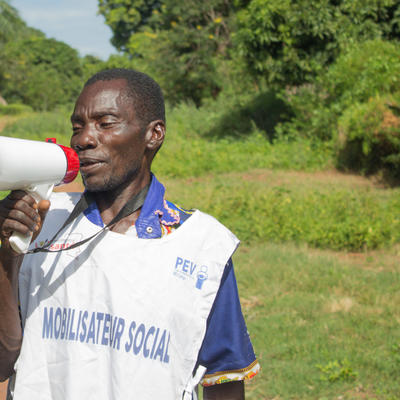
As 2024 ends, we celebrate progress in polio eradication: WASH integration in Afghanistan, leadership in Zambia and Guinea, and youth-led campaigns in Uganda. Discover the resilience and global commitment driving us closer to a polio-free world. 🌍💉✨
Issue 21 | December 2024
Message from the Polio SBC Team
Dear Team,
As 2024 comes to a close, we find ourselves at a pivotal moment in the global fight against polio. This year has been marked by both significant progress and formidable challenges. The resurgence of wild poliovirus in Pakistan and Afghanistan and multiple outbreaks of vaccine-derived poliovirus across Africa underscore the urgency of our mission. Yet, amidst these hurdles, your resilience, dedication, and innovation continue to shine.
From health workers in Gaza achieving near-complete vaccination coverage amid conflict to youth-led initiatives in Uganda combating misinformation, your collective efforts remind us of the immense power of community-driven action. This year-end edition celebrates these achievements, highlighting transformative initiatives such as integrating WASH with vaccination in Afghanistan, tackling vaccine hesitancy in Cameroon, and sharing personal stories of resilience from advocates in Guinea and Zambia.
Social and Behavior Change (SBC) has proven to be a cornerstone of our strategy, enabling us to understand community needs, dispel misinformation, and foster trust in vaccination programs. By collaborating with local leaders, leveraging digital platforms, and engaging youth, we build the trust and momentum needed to reach every last child.
As we look ahead to 2025, our path remains clear but challenging. Strengthening community engagement, enhancing surveillance, and ensuring vaccine delivery in hard-to-reach areas will require innovation, collaboration, and unwavering commitment. Together, we can rise to these challenges and move closer to a polio-free world.
Thank you for your dedication and relentless efforts. Let us enter the new year with renewed determination and the shared goal of ensuring every child is protected from polio.
With gratitude,
Sheeba Afghani
Senior Social and Behavior Change Manager, Polio
On behalf of the Global Polio SBC Team
🌟 This Newsletter Highlights 🌟
As we wrap up the year, we celebrate the incredible strides made toward polio eradication and advancing social and behavioral change efforts. Here’s what’s inside:
Country Updates:
- Afghanistan 💧 Integration of WASH and polio programs led to significant improvements in hygiene, reducing polio transmission risks.
- Pakistan 🌟 Inspiring 'Untold Stories of Commitment' highlight grassroots mobilizers working tirelessly to eradicate polio.
- Gaza 🕊️ Resilient health workers achieve 97% vaccination coverage amidst conflict, showcasing the power of community efforts.
- Burundi 🌍 Capacity-building workshop in Ruyigi Province highlights gender integration in vaccination and healthcare.
- Cameroon 📚 Innovative programs like 'School Without Polio' help tackle vaccine hesitancy and ensure children in remote areas are vaccinated.
- DRC 🌿 Local heroes Mrs. Josephine and Nestor Twite Kazadi are leading efforts to protect their communities and inspire others.
- Ethiopia 🧔♂️ Esmail Yenus, a father in Ethiopia's Afar region, champions male involvement in childhood immunization, educating his community and improving vaccination rates.
- Guinea 💪 Healthcare workers and mobilizers employ diverse strategies to protect children from polio, even in challenging environments.
- Madagascar 🛡️ High-profile advocacy and community efforts are pushing forward polio vaccination, demonstrating the strength of multifaceted approaches.
- Uganda 🙋♂️ Youth-led initiatives through U-Report are driving community engagement and increasing vaccine uptake.
- Zambia 🌱 Polio survivor Charles Mulenga leads local advocacy, building trust in vaccines and empowering his community.
Global Updates:
- Polio Eradication Strategy Extended 📅 The GPEI Strategy is extended to 2029, with renewed financial plans to ensure no child is left behind.
- Global Commitment to Polio Eradication 🌍 Global leaders reaffirm their dedication to reaching every unvaccinated child, demonstrating unwavering support from major international forums like the G7 and G20 to local community initiatives around the world.
Learning and Inspiration:
- Discover New Learning Opportunities 📘 Explore the SBC Learning Channel, insights from the 7th TIMB Report on polio transition, and learn about integrating gender into eradication efforts.
Open Polio & SBC Vacancies:
- Find the latest opportunities to join our mission in polio eradication and SBC initiatives worldwide.
Join us as we end this year with renewed determination to eradicate polio! Together, with the relentless efforts of our global teams, partners, and communities, we are closer than ever to a polio-free world. 🌎💪 Let’s make a lasting impact, one vaccination at a time. 💉✨
COUNTRY UPDATES
Afghanistan
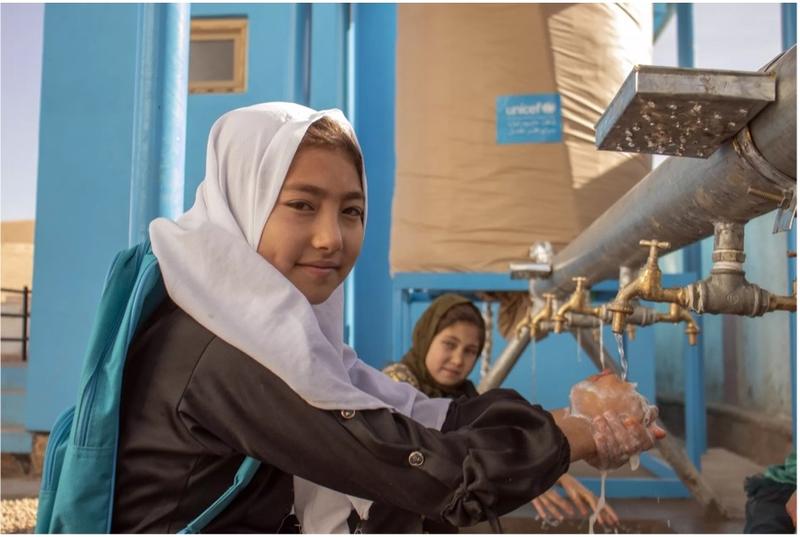
In Afghanistan, integrating Water, Sanitation, and Hygiene (WASH) programs with polio vaccination efforts is tackling key risk factors for polio transmission. By enhancing hygiene and sanitation alongside polio vaccination, the initiative has led to 12 specific improvements in community practices. Notable achievements include handwashing practices increasing from 13% to 95%, more households treating their water (from 15% to 93%), and latrine use rising from 30% to 70%, positively impacting over 1,300 families and significantly reducing polio transmission risks.
Pakistan
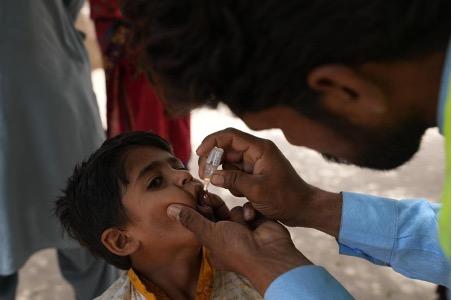
Untold Stories of Commitment: Pakistan's Fight Against Polio
Pakistan's fight against polio is driven by individuals dedicating their lives to ensure every child is vaccinated. Under 'Untold Stories of Commitment', we see brothers working tirelessly across regions, grassroots mobilizers combating misinformation, and communities coming together to protect their children. These stories highlight resilience, commitment, and the power of community action.
In Pakistan, two brothers have dedicated their lives to the mission of eradicating polio. Working tirelessly in different regions, they are breaking down barriers, combating misinformation, and ensuring that vaccines reach every child, especially those in marginalized communities.
Adnan Shaukat, a social mobilizer in Pakistan, has been at the forefront of community engagement, working to combat vaccine hesitancy and misinformation. His dedication to ensuring that no child is left unvaccinated is a testament to the power of grassroots efforts in the fight against polio.
Gaza
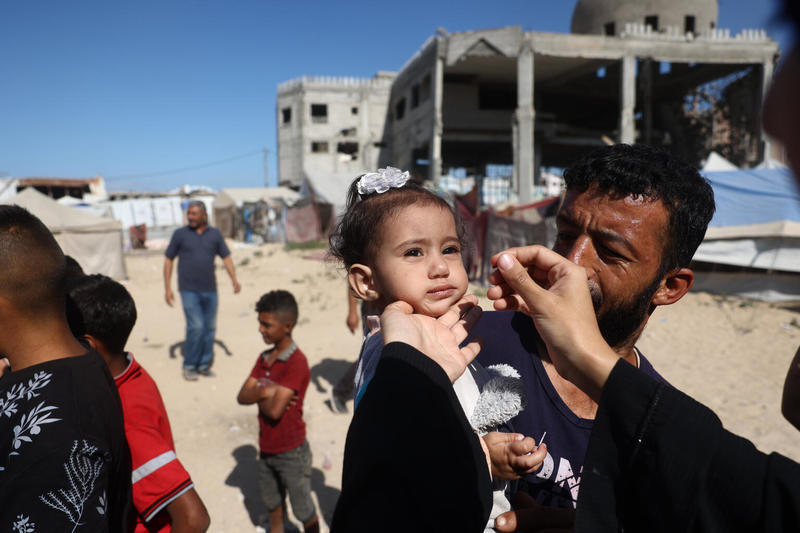
Despite ongoing conflict, the polio vaccination campaign in Gaza achieved an extraordinary 97% coverage among children under ten in 2024. With support from UNICEF, WHO, UNRWA, and Global Polio Eradication Initiative partners, over 1.6 million doses of the nOPV2 vaccine were administered. The resilience of Gaza’s health workers and the strength of community engagement have been key in delivering essential healthcare, even under the most challenging conditions.
Burundi
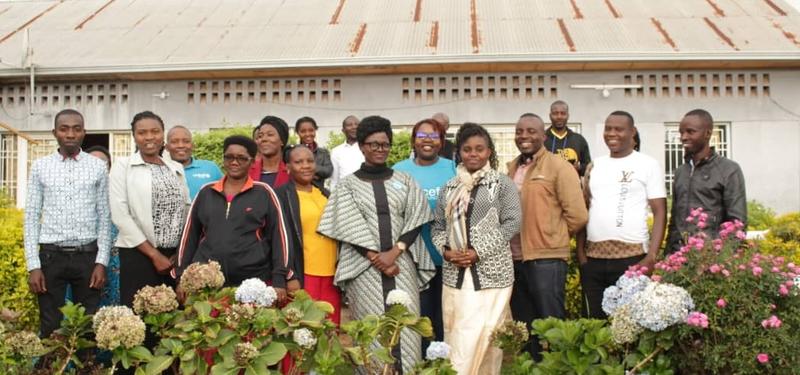
In November 2024, Burundi’s Ministry of Public Health, with support from UNICEF Burundi, hosted a capacity-building workshop in Ruyigi Province. The event focused on integrating gender into primary healthcare programs, including vaccination, highlighting the ministry’s commitment to equitable health services.
Discover more by checking out their tweet: see the post
Cameroon
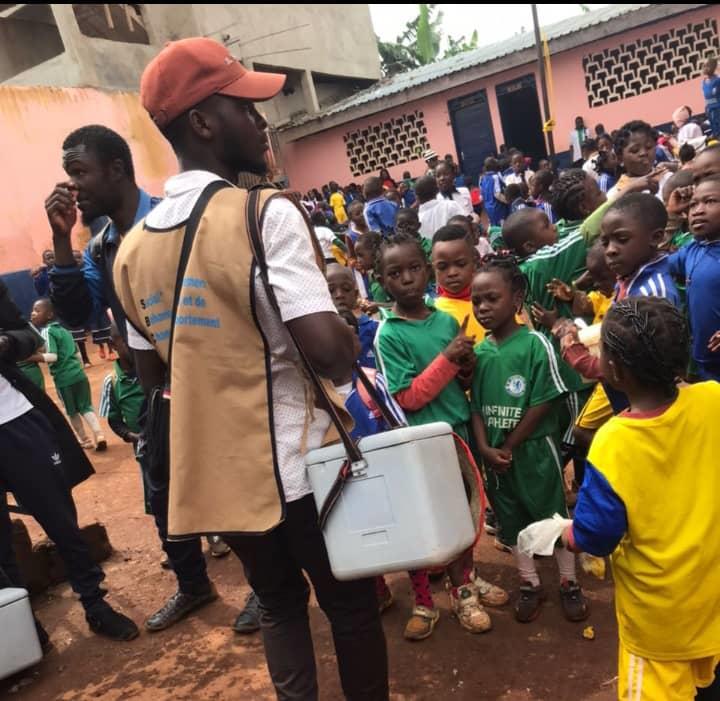
Cameroon’s polio vaccination efforts have been defined by a series of innovative approaches, including the 'School Without Polio' program, cross-border initiatives, and integrating polio vaccination with birth registration. These efforts are critical in a context where vaccine hesitancy, geographic barriers, and misinformation are major challenges. By combining community-focused programs with regional cooperation, Cameroon has made significant strides in reaching even the most remote and underserved areas.
In Cameroon, the “School Without Polio” initiative has bridged the gap between the health and education sectors. By deploying over 650 stakeholders, including teachers as mobilizers across schools, the initiative tackled the root causes of vaccine hesitancy. Teachers became health ambassadors, leading advocacy sessions and contributing to visible improvements in vaccination rates.
Cameroon has also led successful cross-border vaccination initiatives, ensuring that children in remote and border areas receive life-saving polio vaccines. By collaborating with neighboring countries, health workers have reached underserved communities, highlighting the importance of regional cooperation in the fight against polio.
To ensure no child is left behind, Cameroon has combined polio vaccination efforts with birth registration initiatives. This integrated approach not only protects children from polio but also ensures they are officially recognized, providing them with better access to healthcare and other essential services.
Democratic Republic of the Congo (DRC)
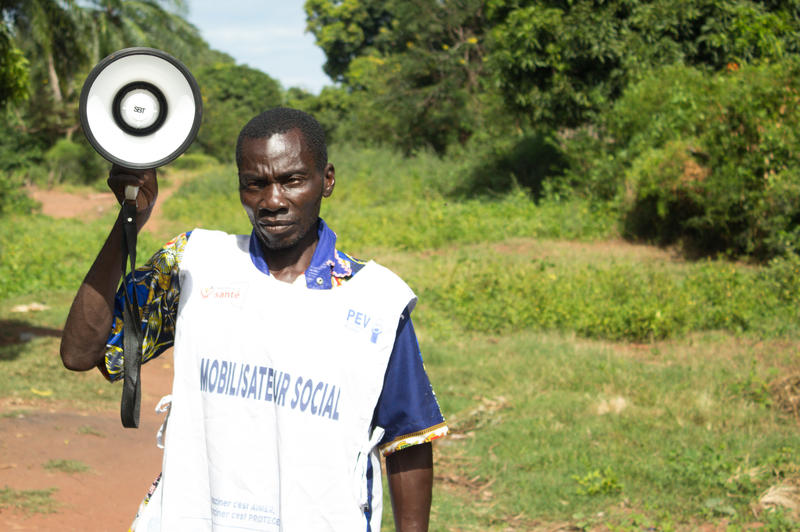
In the DRC, community leaders and educators are at the forefront of efforts to eradicate polio. Their work focuses on overcoming doubt, inspiring community action, and ensuring that every child receives vital vaccinations. The stories of Mrs. Josephine and Nestor Twite Kazadi illustrate the profound impact of local champions in transforming public health attitudes.
Mrs. Josephine, a community leader in Dibaya, is making strides in changing perceptions about polio vaccination. Through her efforts, families who were once hesitant are now actively participating in vaccination campaigns, driven by her message of hope and protection for future generations.
Nestor Twite Kazadi, a teacher in DRC, has taken on an additional role as a community mobilizer, using his platform to educate both students and parents about the importance of polio vaccination. His work is inspiring others to prioritize health and take proactive steps to protect their communities.
Through educational talks, community activities, and immunization campaigns, Dr. Maunga combats cultural barriers to promote vaccination and protect children's rights.
Ethiopia
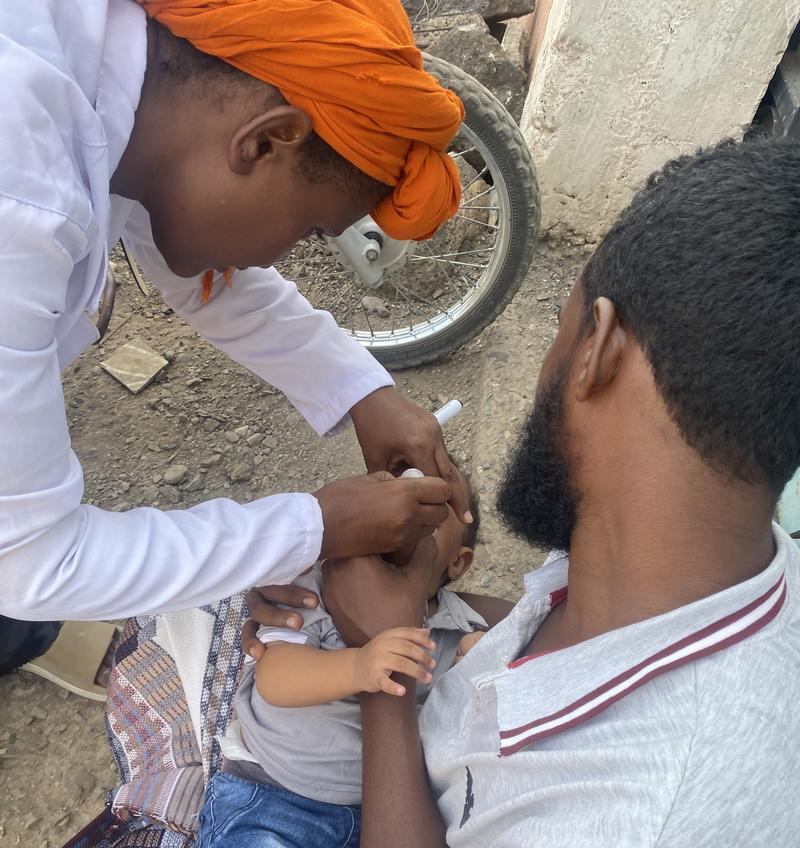
In Ethiopia's Afar region, male involvement is transforming immunization efforts. Esmail Yenus sets an example by ensuring vaccinations for his children and actively promoting health awareness in his community, proving that male advocacy is key to improving vaccination rates and gender equality.
Guinea
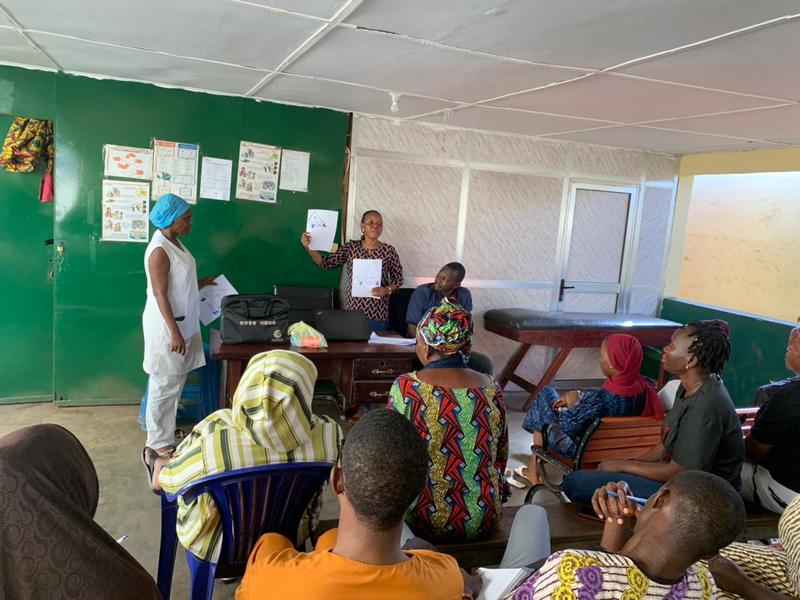
In Guinea, the battle against polio is fought not just with vaccines, but with the determination and leadership of inspiring individuals. These human-centered stories highlight the incredible efforts of a doctor, a soldier, and a dedicated community mobilizer, each making unique contributions to eradicate polio and protect the future of Guinea's children.
Dr. Isabelle Saran MANOH, a doctor and godmother of the Wanindara Health Center, has been at the forefront of Guinea's 2024 polio campaign. Her leadership has empowered women to protect their children, resulting in an impressive 154% vaccination coverage at her health center.
Lieutenant Colonel Gbamon Kpoghomou has taken his skills from the battlefield to the community, becoming a key figure in Guinea's vaccination campaign. By shedding his uniform and gaining community trust, he has helped ensure that even the most skeptical families understand the importance of polio vaccination.
Papa Diouldé Kanté, a retired accountant, has dedicated the past 15 years to mobilizing his community for polio vaccination. Known and trusted by the people of Hafia 1, his tireless door-to-door efforts have turned vaccine hesitancy into community-wide acceptance.
Madagascar
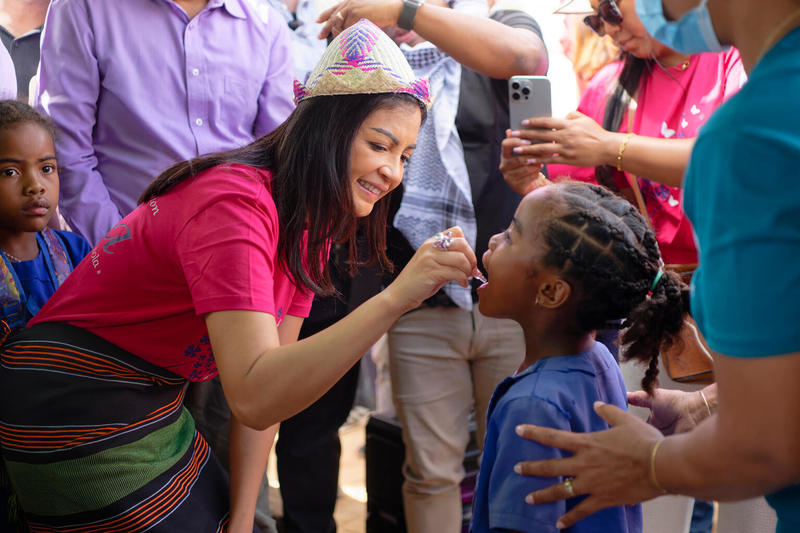
Madagascar has adopted a multi-faceted approach to polio eradication, incorporating leadership from high-profile figures, innovative social behavior change strategies, and community engagement. These diverse efforts are making significant strides toward a polio-free future.
First Lady Mialy Rajoelina of Madagascar has been at the forefront of polio eradication efforts in 2024. Through her leadership and active participation in vaccination campaigns, she has engaged with global health leaders and encouraged parents across Madagascar to ensure their children receive life-saving vaccines.
Madagascar’s success in combating polio lies in the collaboration between health authorities, community leaders, and schools. By involving local opinion leaders and adapting strategies based on community feedback, Madagascar has seen significant improvements in vaccination coverage. Engaging women as frontline actors and continuously evaluating campaigns have proven essential to overcoming barriers and moving closer to a polio-free future.
Schools have become key hubs for reaching children aged 5-14 during Madagascar’s polio vaccination campaigns. By integrating social and behavior change (SBC) strategies, the Ministry of Public Health, in collaboration with the Ministry of National Education, has successfully engaged school directors, teachers, and parent associations to promote vaccinations.
Madagascar’s innovative SBC strategies also extended polio vaccination efforts to adults in high-risk regions. By engaging workplaces, faith-based institutions, and public spaces, the campaign overcame vaccine hesitancy and logistical challenges, achieving impressive vaccination rates.
Uganda
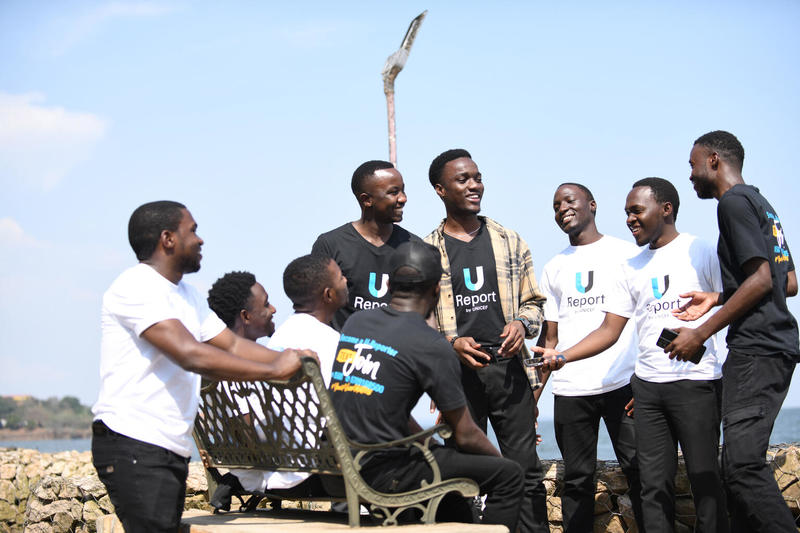
In Uganda, the U-Report platform is empowering youth to become advocates for vaccination in their communities. By leveraging digital tools, young people are spreading awareness about polio vaccination, dispelling myths, and encouraging their peers to get involved. This youth-driven approach has strengthened community engagement and increased vaccine uptake.
Zambia
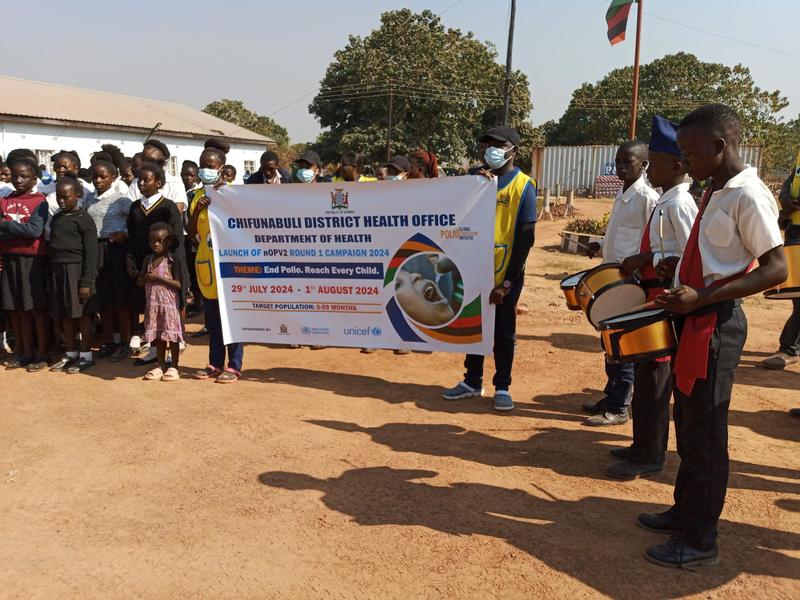
Polio survivor Charles Mulenga has turned his challenges into a mission of advocacy. As Council Secretary in Chifunabuli, he drives vaccination efforts, working with local leaders and using digital tools to build trust and demand. His resilience and leadership inspire hope, showing the impact of local action in public health.
GLOBAL UPDATES
Introducing the Polio Digital Messaging Guide
A Strategic Tool for Digital Engagement and SBC
Over the past few years, our Digital Community Engagement (DCE) efforts have faced a steady flow of online rumors, misinformation, and disinformation related to polio. The Polio Digital Messaging Guide is a culmination of these experiences, offering practical tools to boost vaccine confidence and counter misinformation. Key features include:
- Step-by-Step Strategies: Detailed guidance on crafting impactful digital messages tailored to specific audiences.
- Templates and Tools: Ready-to-use resources for designing effective communication campaigns.
- Misinformation Management: Proven approaches for both “prebunking” and “debunking” misinformation in real time.
- Trusted Messengers: Insights on leveraging credible voices in communities to amplify key messages.
- Social Listening Integration: Strategies to use data from social listening to inform and refine messaging efforts.
By bridging digital best practices with field-based health communication, the guide equips teams with the knowledge and tools needed to protect children from polio while fostering trust in vaccination programs.
Discover how this essential resource can elevate your digital engagement approach and inspire action today!
Global Unity Drives Polio Eradication Efforts Forward
Global leaders and communities continue to rally behind polio eradication, demonstrating unwavering support across all levels. From the G7, G20, and Commonwealth summits to regional health forums and civil society champions like Rotary International, the commitment to reaching every unvaccinated child remains resolute. Youth delegates at the Model WHO and voices from affected regions underscore the power of collaboration, with one stating, “If we can reach children in Gaza, we can reach children anywhere.” Together, these efforts show that global unity and political will are driving us closer to a polio-free world.
DCE Program Evaluation 2024
Highlighting a Year of Strategic Digital Interventions
In 2024, the Digital Community Engagement (DCE) program implemented targeted misinformation response campaigns across the world, focusing on specific demographics in Afghanistan, Pakistan, Cameroon, Nigeria, Ghana, Uganda, Indonesia, Sudan, and Kenya. We are pleased to release the DCE Program Evaluation 2024, which details how these campaigns reached millions, providing crucial support in correcting misinformation and fostering vaccine acceptance. In Indonesia alone, campaigns delivered over 14 million impressions, while combined efforts in Nigeria and Ghana generated 5.9 million impressions. In Kenya, these campaigns significantly shifted community perceptions, with 87% of respondents exposed to ads expressing a willingness to vaccinate their children—far exceeding those who had not encountered the messaging. In Pakistan, a targeted activation engaged over 9 million people, sparking 252,000 interactions and directing more than 61,000 individuals to verified health resources.
Supported by tools like bi-weekly newsletters and the uInfluence digital volunteer network, which mobilized efforts across 40+ countries, the DCE program has established a robust framework for combating misinformation on a global scale. For a comprehensive look into our strategy, challenges, and measurable impact, the full report offers valuable insights into how digital community engagement is driving progress in the fight against polio.
Extending the Polio Eradication Strategy: A Renewed Vision and Financial Plan
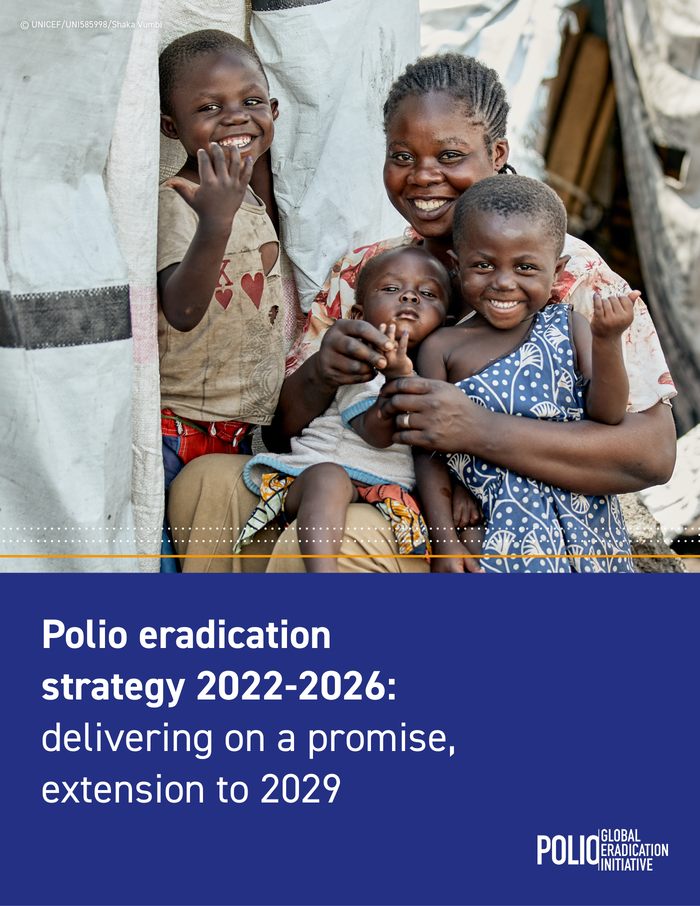
The Polio Oversight Board (POB) has extended the Global Polio Eradication Initiative’s (GPEI) 2022–2026 Strategy to 2029, accompanied by a revised budget of $6.9 billion. This comprehensive approach addresses the persistent challenges of reaching children in fragile settings through innovative tools, cross-border coordination, and targeted action in high-risk areas.
To support this strategy, the GPEI Multi-Year Budget Explainer 2022-2029 outlines the financial framework and resource mobilization efforts needed to achieve eradication. It highlights the importance of innovation, collaboration, and strategic investments to ensure no child is left behind. Learn more about the extended strategy and financial plan shaping the path toward a polio-free world:
Read the full update and access the budget explainer
Announcing the DCE Strategy 2024–2026
Paving the Path for Future-Ready Digital Community Engagement
We are excited to present the DCE Strategy 2024-2026, a robust pathway that sets forth a future-focused agenda for Digital Community Engagement in support of polio eradication. This strategy has been meticulously and collaboratively developed to align with UNICEF Polio SBC’s overarching goals, laying out an actionable plan to leverage digital platforms, enhance community trust, and empower individuals and families to make informed health decisions. The strategy is anchored by five pillars - Complement, Anticipate, Mobilize, Empower, and Collaborate - each designed to create a supportive digital environment for vaccine acceptance. From strengthening our social listening capabilities to building local influencer networks, the DCE Strategy is set to empower polio teams with cutting-edge digital tools and insights, ultimately enhancing community trust and engagement. The DCE Strategy 2024-2026 is more than a roadmap; it is an invitation for every SBC practitioner to lead the charge in digital innovation, making a profound impact on the health and future of children worldwide.
Anyone can submit a country or regional update. Please email Daria Shubina ([email protected])
Learning and Inspiration
🎓Learning Opportunity: Social and Behavior Change Learning Channel
Explore the SBC Learning Channel on Agora to boost your skills in Social and Behavior Change. This resource hub offers learning pathways, videos, regional materials in UN languages, and foundational SBC documents to enhance your ability to create impactful SBC programs, using evidence, participatory approaches, and community collaboration to promote measurable, positive change. Explore SBC Learning Channel
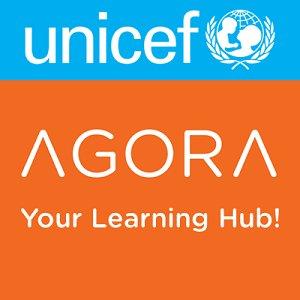
📝 Reading: Navigating Polio Transition–What the 7th TIMB Report Recommends
The 7th Polio Transition Independent Monitoring Board (TIMB) Report outlines how to smoothly transition from the Global Polio Eradication Initiative (GPEI) to country-led efforts. The report underscores the importance of preserving the progress made and highlights key challenges, such as the need for strong vaccination, surveillance, and rapid response systems. With new strategies and an emphasis on resilience, the TIMB provides a roadmap to sustain a polio-free world, focusing on national ownership, funding stability, and protecting the most vulnerable. Read the full report
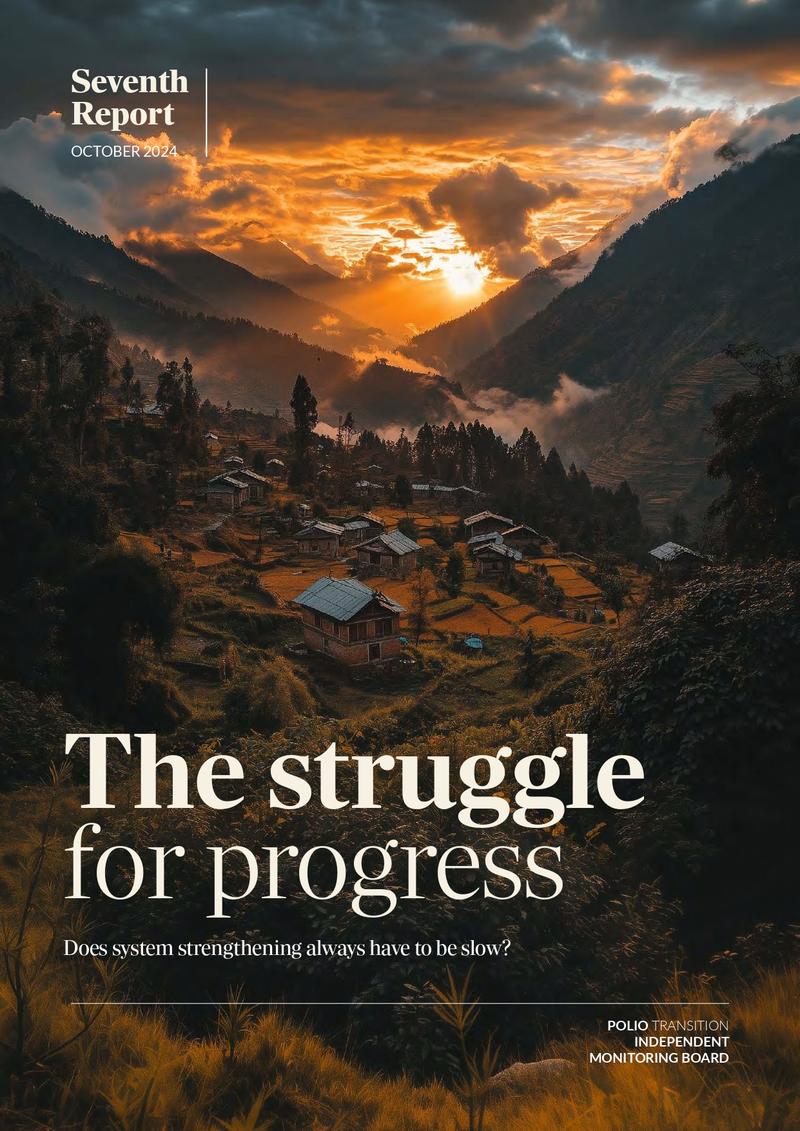
🎬 Video: Delivering Protection, One Drop at a Time. The Journey of nOPV2
nOPV2, a next-generation polio vaccine, is transforming efforts to stop type 2 variant poliovirus outbreaks—the most prevalent cause of polio-related paralysis in children today. This video traces its journey from Bio Farma in Indonesia, where over 1.2 billion doses have been produced since 2021, to Biological E in India, which has joined the effort to expand supply. Highlighting the vaccine’s path from laboratories to healthcare workers worldwide, this story celebrates global collaboration to protect every child from polio, one life-saving drop at a time. Watch video
📚 Reading: Exploring Gender Dimensions in Polio Eradication. A Spotlight on Literature
In alignment with the 16 Days of Activism Against Gender-Based Violence, this feature explores how gender intersects with the polio eradication journey. Highlighted below are three powerful books offering narratives and insights into the social dynamics that shape the experiences of polio survivors and advocates, emphasizing the critical need to address gender inequality in health and beyond:
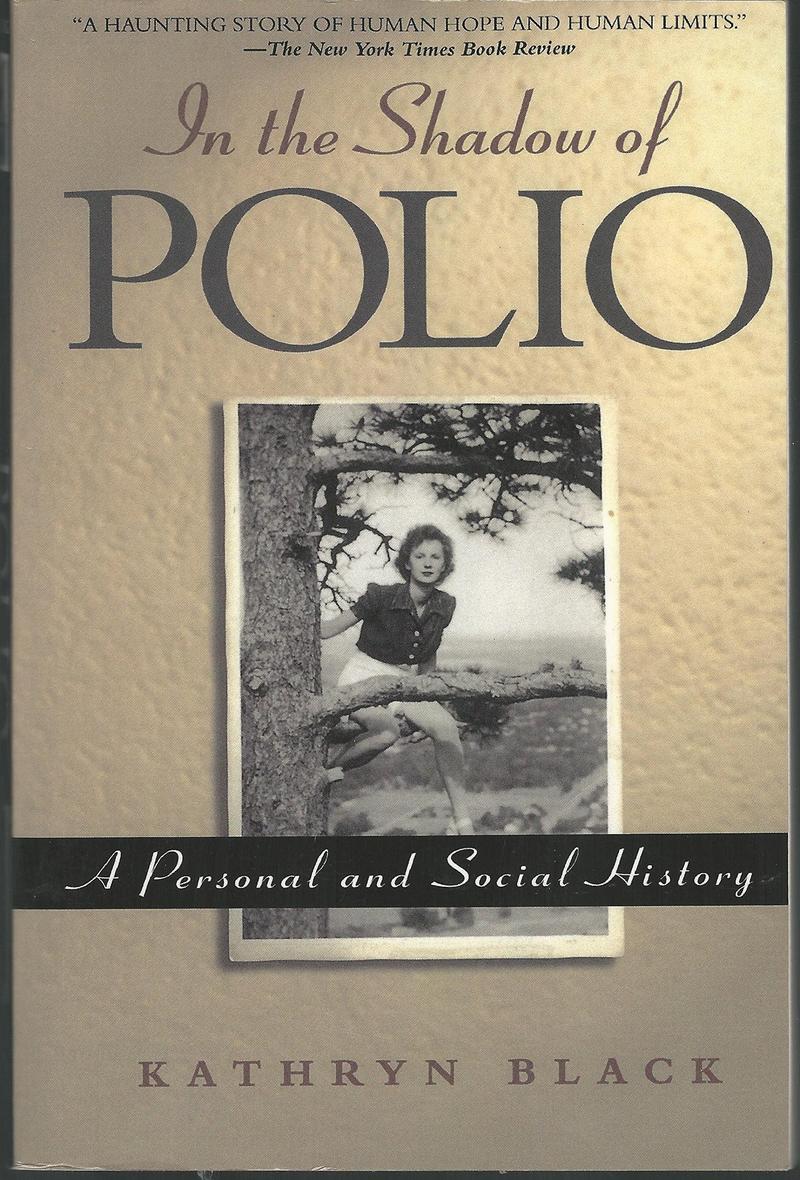
Living with Polio: The Epidemic and Its Survivors by Daniel J. Wilson
This compelling collection of personal narratives from over 100 polio survivors illustrates how societal roles, including gender, impacted their experiences of survival and recovery. A poignant reminder of the resilience and challenges faced during the epidemic.
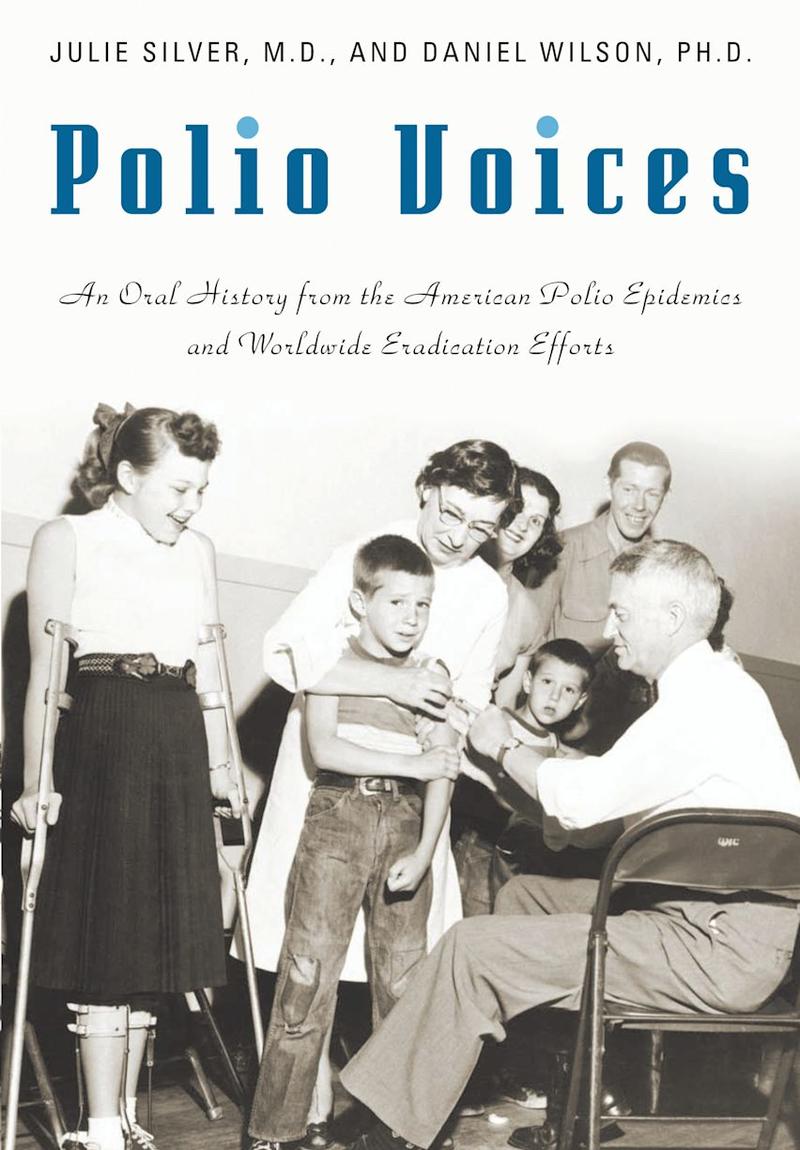
Polio Voices: An Oral History from the American Polio Epidemics and Worldwide Eradication Efforts by Julie K. Silver and Daniel J. Wilson
Through oral histories, this book reveals the diverse experiences of polio survivors, particularly how gender shaped their paths toward recovery and advocacy.
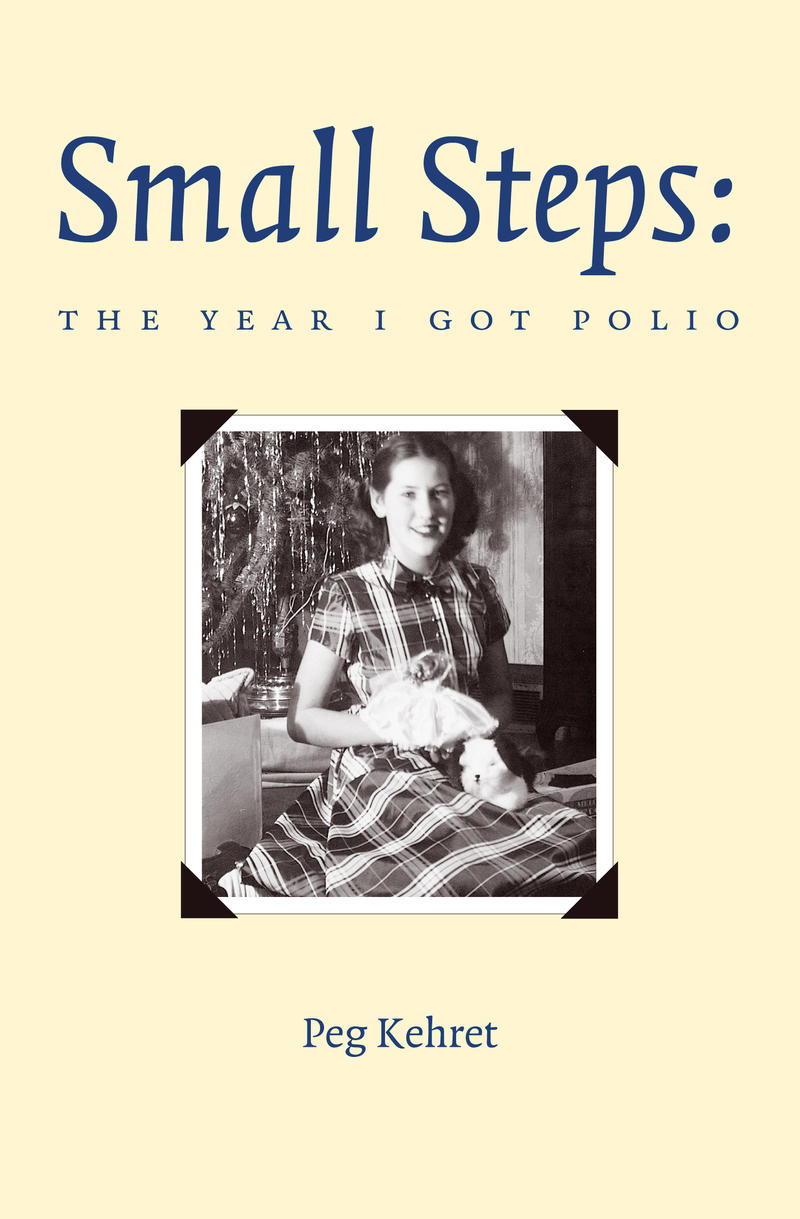
Small Steps: The Year I Got Polio by Peg Kehret
In this deeply personal memoir, the author recounts her battle with polio as a twelve-year-old girl, offering reflections on how gendered societal expectations influenced her resilience and recovery.


